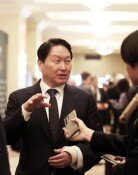[Opinion] Water Price
If people are competing, but look close, we call them rivals. According to the Korean language dictionary, a rival is explained as a competitor. However, it is very difficult to find a Korean word that fits the exact meaning of the word rival. The English dictionarys description of its origin illustrates that rival indicates people living near a river and is a derivative of the word river. Then, what is wrong with people living near rivers? And why do they now represent rivals?
The reason lies in their desire to dominate water. Even though they look very close because they had to use the same water, they were always anxious about who obtained a better location to dominate water. This is not a particular case that occurred in the Western society. Our ancestors whose single means of living is doing farming often fought to make more water flow to their fields, which frequently caused serious conflicts among neighbors. The war of the Three Kingdoms of Shilla, Goguryeo, and Baekje was, in some sense, a fight to win access to the Han River.
Even as we speak now, such water conflicts occur in the every corner of the world. For example, Israel, Syria, and Jordan are suffering conflicts due to their discord over who manages the Jordan River. Turkey and Iraq are also fighting each other over the management of Euphrates River, and the U.S. and Mexico still show dissention on matters related to Rio Grande River. In local communities, we often see similar troubles as local self-governing bodies are becoming more sensitive to matters related to water management such as water distribution, water source management, and related facilities construction.
The restoration project of Cheonggyecheon that is scheduled to be completed on October 1 is now triggering a collision between Seoul Metropolitan City and the Korea Water Resources Corporation (KOWACO) on whether Seoul City has to pay water price that flows into Cheonggyecheon from the Han River. The KOWACO called for Seoul City to pay water taxes by referring to the Act on Construction of Dams and Assistance to their Environs. Seoul City, however, refused KOWACOs demand by mentioning related regulations, which said that the act might not be applicable if the concerned project was designed for public goods. Personally, it is not understandable to ask for tax payments on waters that flow into the Han River via Cheonggyecheon, although related laws and regulations will judge its lawfulness.
Song Dae-keun, Editorial Writer, dksong@donga.com







